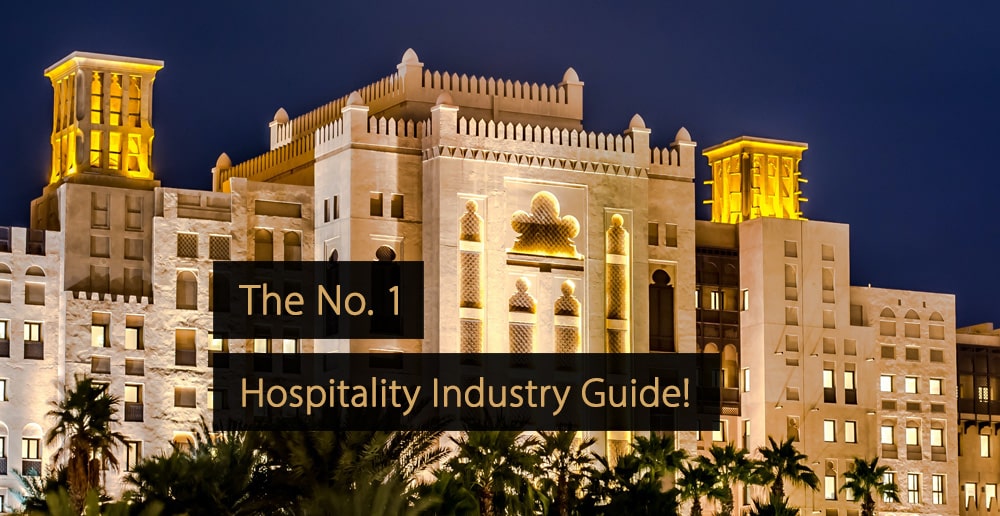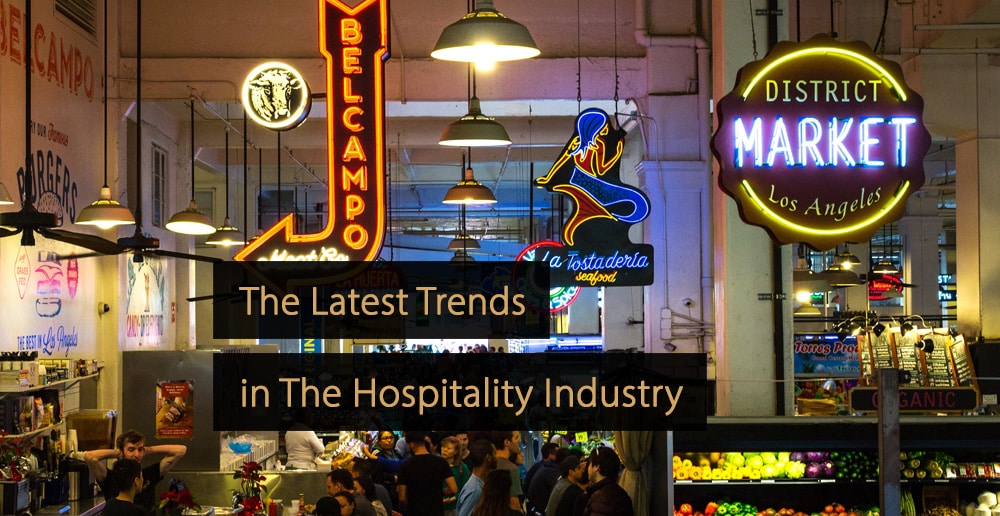Hospitality is a large and complex industry, meaning delivering services and solutions for guests. The hospitality sector is intimately connected to the hotel and travel industries yet distinct from both. “Hospitality” isn’t just a set of services — it’s a culture. In this article, you’ll learn about hospitality as an industry and a concept.
Table of Contents:
- Hospitality: Meaning?
- What Is the Meaning of the Hospitality Industry?
- What Is the History of the Hospitality Sector?
- Hospitality Meaning for Industry Stakeholders
- Hospitality vs Tourism Industry: Meaning
- What Is the Meaning of Hospitality Management?
- Customer Experience in Hospitality Industry
- Digital Trends
- Hospitality Jobs
Hospitality: Meaning
When you think of the term “hospitality”, several things may come to mind. The term’s broad meaning is a friendly and welcoming atmosphere, a sense of caring for guests, and ensuring that their needs are met. Then there’s the more specific meaning of hospitality related to the industry: providing services and facilities for travelers, diners, and other guests visiting an establishment.
The hospitality industry can overlap with the hotel industry, as well as restaurants, cafes, bars, and places of entertainment. Hospitality services are essential to travelers who need to find food and beverages when moving or staying in accommodation. As well as the nuts and bolts of providing these things to guests, hospitality also involves cultivating an amiable and welcoming culture within an organization.
What Is the Meaning of the Hospitality Industry?
The hospitality industry is an umbrella term covering many different businesses and services. The hospitality industry exists to provide experiences for its guests. As well as more obvious examples like pubs and restaurants, hospitality covers hotel room service and food and beverage (F&B) services on trains and planes.
It can also cover other services, such as entertainment. One significant difference between the hospitality industry and other industries is its reliance on discretionary (disposable) income. In the strictest sense of the word, people don’t need hospitality services in the same way they need food or accommodation. Hospitality is there to make life more enjoyable.
Video: Hospitality Meaning
What Is the History of the Hospitality Sector?
Hospitality, meaning providing services and experiences to guests, goes back to the dawn of history. The earliest known writings of humankind describe things like bars, food vendors, entertainment venues, and places where travelers could be welcomed on the road.
Road networks in many parts of the world were undeveloped, and travelers had to exist through camping and small stores of transportable food; even so, established routes offered inns, taverns, or their local equivalents. In the Middle Ages, pilgrims traveling through Europe to the Holy Land created a need for accommodation and (for wealthier travelers) places where they could relax and be cared for.
Accommodations remained fairly rudimentary, however, with many travelers forced to camp or take refuge in religious establishments. It wasn’t until the 18th century that Europeans began creating dedicated establishments such as hotels. As the technology for travel became more advanced, more people traveled, and the need for hospitality grew. That growth continues to this day.
Hospitality Meaning for Industry Stakeholders
In this section, learn more about what hospitality means to society. The following sub-categories are the main stakeholders directly influenced by the hospitality industry.
For Jobs
The hospitality industry is crucial for a huge number of people. Jobs in hospitality are hugely important to the wider economy, providing income and thus increasing spending. Although the rise of COVID and other social factors can cause fluctuations in the industry, the overall number of opportunities in the hospitality industry will only grow in the foreseeable future.
It’s a great industry for people with various skill sets, offering various career paths and opportunities. While the public-facing aspect of the hospitality industry might be more familiar to most people, the industry has a whole raft of essential jobs behind the scenes.
For Travelers
Travelers will always need hospitality, meaning they’re a significant subset of consumers in the industry. Travelers on a long trip will require food, beverages, and sometimes entertainment while getting to their destination. They must know they will arrive at their destination and find welcoming lodgings.
They’ll also need to be able to eat in comfortable surroundings. Those traveling for leisure, such as tourists and holiday-makers, will also want to find things to do and enjoy. Entertainment, dining, and relaxing are essential to these guests — and thus to the hospitality industry.
Hospitality meaning: Holiday-travelers
For Customers
Whether providing a simple working lunch or an extravagant night out on the town, the hospitality industry is integral to many people’s daily lives. No wonder the hospitality industry accounts for 10.4 percent of the gross domestic product globally. Over the next ten years, economists predict that this will likely grow by a further 10 percent.
Economies worldwide depend heavily on the hospitality industry in all its many forms. As well as dining, drinking, and entrance fees to venues for entertainment, people engaging with the hospitality industry also spend money in businesses such as retail outlets.
Hospitality vs. Tourism Industry: Meaning
Essentially, tourism means the act of traveling to a destination. This may be a trip abroad or within a person’s own country and may be undertaken for business and leisure. The World Tourism Organisation defines tourism as traveling to and staying in a location outside your environment for more than 24 hours but less than a year.
The tourism industry is made up of those businesses whose activities are geared towards these travelers. The hospitality industry is broader in scope, incorporating many tourism-oriented businesses within its range of operations. The chief difference between the two is that tourism is more narrowly concerned with travelers.
What Is the Meaning of Hospitality Management?
Hospitality management is one of the widest career fields imaginable. It covers everything from running a local pub to being the manager at a luxury destination spa. You can focus on one specific hospitality area, such as managing entertainment venues, or seek out experience across various sectors and departments. Because the industry is constantly developing and evolving, a career in hospitality management allows for a great deal of variety.
A hospitality manager oversees the various departments that make up a hospitality business and ensures that they operate together seamlessly. For example, a hotel manager will need to oversee the front desk, the restaurant, the concierges, the housekeeping department, and any other services the hotel offers. A hospitality manager will be involved in budgeting, finances, and interacting with suppliers and outside contractors.
Customer Experience in Hospitality Industry
Customer experience is at the core of hospitality, meaning it must be your business’s core. Improving your customer experience, incorporating the latest trends and developments, and ensuring that your guests are content and their needs are met — that’s the heart of any hospitality business. Delivering this in a changing industry can be challenging, however.
In “8 Ways to Improve Customer Experience in the Hospitality Industry”, you’ll pick up vital tips to improve your customer experience, boosting your competitive advantage and improving your guests’ lives. You’ll learn about personalization marketing, new trends in technology such as AI and the Internet of Things, and how they can work for you.
Digital Trends
Every sector is affected by changes in technology. This includes the hospitality industry, meaning you must also stay ahead of digital trends. Information has never been more easily available, both good and bad. It’s bad news for businesses that don’t learn how to leverage the digital world for greater engagement and better customer service.
If you engage with digital trends and learn how they can boost your business. In “Key Digital Trends in the Hospitality Industry”, you’ll discover eight major trends and what they mean for you.
Hospitality Jobs
There are many different roles in the hospitality industry, meaning that almost anyone can find a position that suits them and their personal goals. Even the most ambitious person can fulfill their dreams, working their way up the ladder in an exciting and diverse array of career paths.
The tricky part is locating the roles that are right for you. In “Hospitality Jobs: Overview of All Channels to Find Your Next Job”, you’ll learn about the many channels you can use to find your dream position. Learn how to approach today’s demanding employers and what skills will benefit you the most in your career.
Hospitality meaning is a diverse and international industry full of opportunities. It’s a vital part of the economy and is constantly developing. As a people-centered industry, it is focused on creating the best possible experience for customers from all walks of life.
More Tips to Grow Your Business
Revfine.com is the leading knowledge platform for the hospitality and travel industry. Professionals use our insights, strategies, and actionable tips to get inspired, optimize revenue, innovate processes, and improve customer experience.Explore expert advice on management, marketing, revenue management, operations, software, and technology in our dedicated Hotel, Hospitality, and Travel & Tourism categories.
This article is written by:
Hi, I am Martijn Barten, founder of Revfine.com. With 20 years of experience in the hospitality industry, I specialize in optimizing revenue by combining revenue management with marketing strategies. I have successfully developed, implemented, and managed revenue management and marketing strategies for individual properties and multi-property portfolios.










Leave A Comment